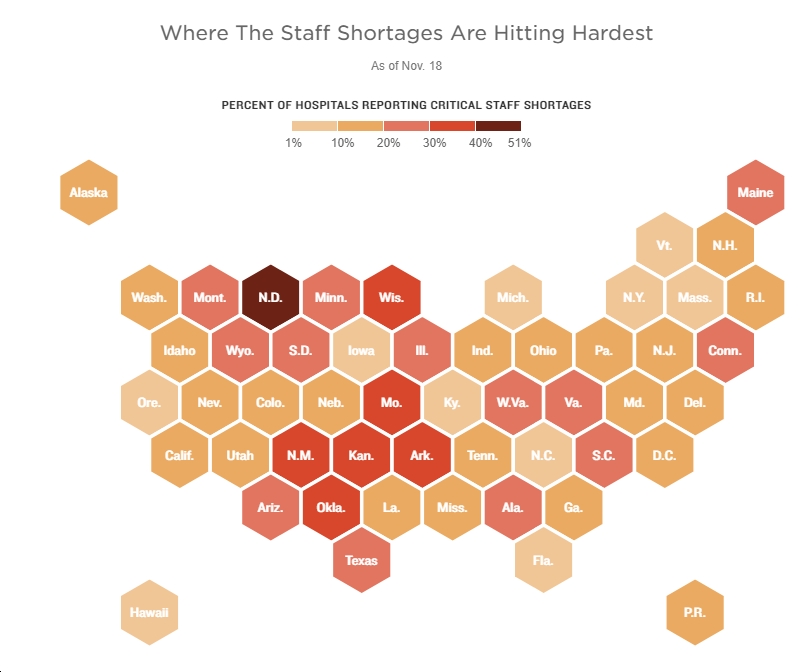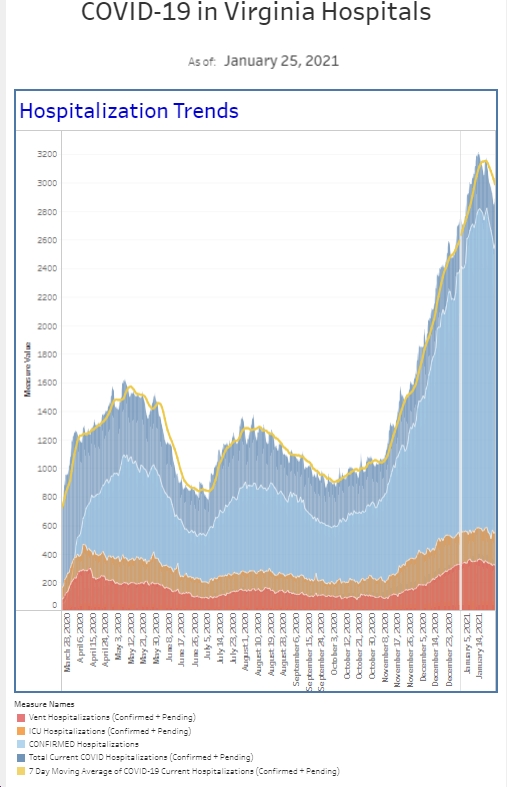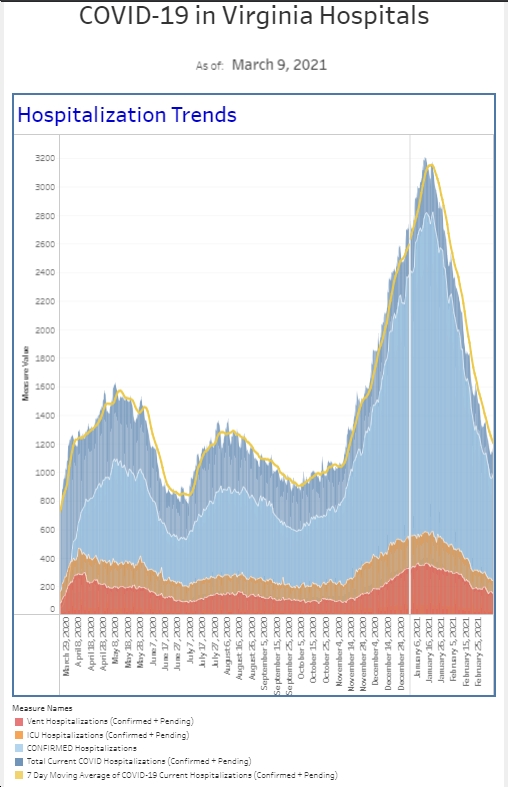Thanks as always to Dr. Mike Silverman, Chair of the Department of Emergency medicine at Virginia Hospital Center, for these helpful updates!
Friday Night Update from the ER in Arlington, VA
If you’re a parent of a kid <12, you’ve probably heard the news about the Pfizer vaccine. The Pfizer CEO (and also the CFO) announced this week that they are likely to submit data to the FDA for the 5-12 year ago group by the end of September. This would be a request for an EUA and could be approved within 3 weeks of submission to the FDA. Moderna is likely to be a month or so behind Pfizer. This is great news for those with younger kids.
Pfizer and Moderna also made some announcements about boosters. I had hoped to be getting my booster next week, but the FDA hasn’t approved it. The FDA’s Advisory Committee met today and voted against recommending boosters for everyone 16+. They then had a subsequent vote recommending booster shots for those 65 and older and those at high risk for severe disease 6 months after their 2nd shot. The CDC advisory committee meets next week and hopefully will also consider those with occupational risk. I do expect a booster recommendation for everyone at some point as well, though it will take more time and data to determine the timing. (The timing on Moderna and J&J boosters isn’t clear at this point though will no doubt be considered by the FDA and CDC in the near future) Boosters are currently recommended for immunosuppressed people and more than 2 million boosters have been given.
Here’s our current situation. The Delta variant makes up about 99% of the sequenced cases. Delta is more than two times as contagious as previous variants. Our immune antibody response wanes over time though it’s unclear exactly how clinically significant that is in younger, healthy patients. Pfizer and Moderna submitted more data this week highlighting the decline in effectiveness after 6 months The FDA had asked Pfizer to reanalyze data looking at breakthrough infections in July and August when Delta predominated. Those vaccinated with Pfizer 10+ months earlier had a breakthrough rate of 70 cases per 1,000 person-years, compared to 52 cases per 1,000 person-years for those who had been vaccinated 5 months before. This is where I think it gets interesting and outcome philosophy outweighs the data. Effectiveness is viewed in two ways—reducing the likelihood of infection AND reducing the risk of hospitalization and death. From a macro point of view, and considered the highest priority, Pfizer remains effective at reducing the need for hospitalization and the risk of death. This is likely the logic behind the FDA Advisory Committee’s “no” vote today. It is great that the 2 dose vaccination protocol is so effective and saving lives is really the most important part of the vaccination program. However, in my opinion, it’s also important that we reduce the spread and try to prevent infection, which is the argument for giving boosters more broadly.
So how good is the vaccine performing in the Delta era? The CDC released three large studies involving hundreds of thousands of patients across many states and concluded that the vaccine remains effective “at preventing infection and hospitalizations with the virus” and “concluded that Americans who were not fully vaccinated were far more susceptible to infections, illness and death from the virus.” In another study, “vaccines had an overall effectiveness rate of 86 percent at preventing hospitalizations, though they were less protective for adults aged 75 and over.” A recent study showed that unvaccinated COVID positive patients are 5-7 times more likely to seek care in the ER or require hospitalization compared to vaccinated patients. The third study found that “vaccine protection against hospitalization declined with age, to 80 percent for those aged 65 and older, down from 95 percent for adults aged 18 to 64.” Both Moderna and Pfizer are likely to be about 80% effective against Delta, (granted studies range as low as 60%) down from about 95% against the initial form of coronavirus. Israeli data shows that a booster in highly effective in preventing illness and increasing antibody levels in older adults.
I was talking to a friend recently and said I had decided to stop eating indoors at restaurants around mid-July to minimize my exposure risk. She asked me why since I was vaccinated and pointed out that I was healthy and unlikely to get too sick. And while that’s true, I also cannot afford to get sick from COVID and miss work for 10-14 days. I think there’s a lot of people like me who don’t want to miss work or school, and certainly those who don’t want COVID because we don’t want to risk infecting immunosuppressed loved ones. I look at my daughter and all her friends in colleges around the country and realize so many of them have had COVID scares/exposures or actually gotten COVID. They all had to quarantine and miss school. Keeping kids in the classroom (and their other activities) is just so important, if the vaccine can reduce the likelihood of infection, and subsequent exposures, then I really am in favor of the booster. I also realize that from an operational point of view, phasing in booster shots makes sense as well.
One issue is whether these booster doses would be better served being used around the world or here in the US. Clearly the first priority still needs to be getting everyone who is eligible fully vaccinated. And perhaps keeping the focus on the unvaccinated may also be part of the argument against a booster for 16+ right now. I’m hoping to get a booster soon, but it doesn’t look like it will be next week.
Let’s look back at my week. Monday was World Sepsis Day. Sepsis is the body’s response to an infection. There is a spectrum of severity when it comes to sepsis with higher mortality associated with those who have septic shock. About 35-40% of patients with septic shock will die. About 50% of all hospital deaths are related to sepsis, and almost all people who die of COVID are dying of sepsis. We spend a lot of time working on projects that help us identify sepsis early in the patient’s stay and making sure that we follow a complex algorithm to treat sepsis, because those things lead to better outcomes. I spent Tuesday and Wednesday with a multidisciplinary team working on ER flow and efficiency. Like other ER’s around the country, our volumes are up, we’re seeing sicker patients, and we often have psychiatric patients staying in the ER for a long time. In other words, ER’s everywhere are running out of space. We’re looking to reinvent some of how we do business over the next few months.
Regarding COVID, our percent positive rates, number of admitted patients, and number of ER positives remains consistent over the last 6 weeks or so. There were several very sick COVID patients during my shift yesterday. All unvaccinated, though we still see the occasionally vaccinated patient come to the ER. One patient didn’t want the vaccine in her body but then was fine getting monoclonal antibodies infused. The vaccine teachers your body to generate your own antibodies. Monoclonal antibodies come out of a lab. What’s so frustrating is that we clearly have a protective measure (vaccines) in place and readily available. Just walk into your CVS. The treatments that have been developed over the last 18 months have reduced the mortality rate from 5% to about 1% but things like Ivermectin and Hydroxychloroquine do not work. Prevention is absolutely the best strategy.
I always appreciate all of the comments you leave. I’m wondering if you would also leave me your city/state? I figure this gets read in the DMV but I’m really curious how far spread it goes. Thanks in advance.
Science matters. Get vaccinated. Wear a mask. We’re not quite there.
Mike

















